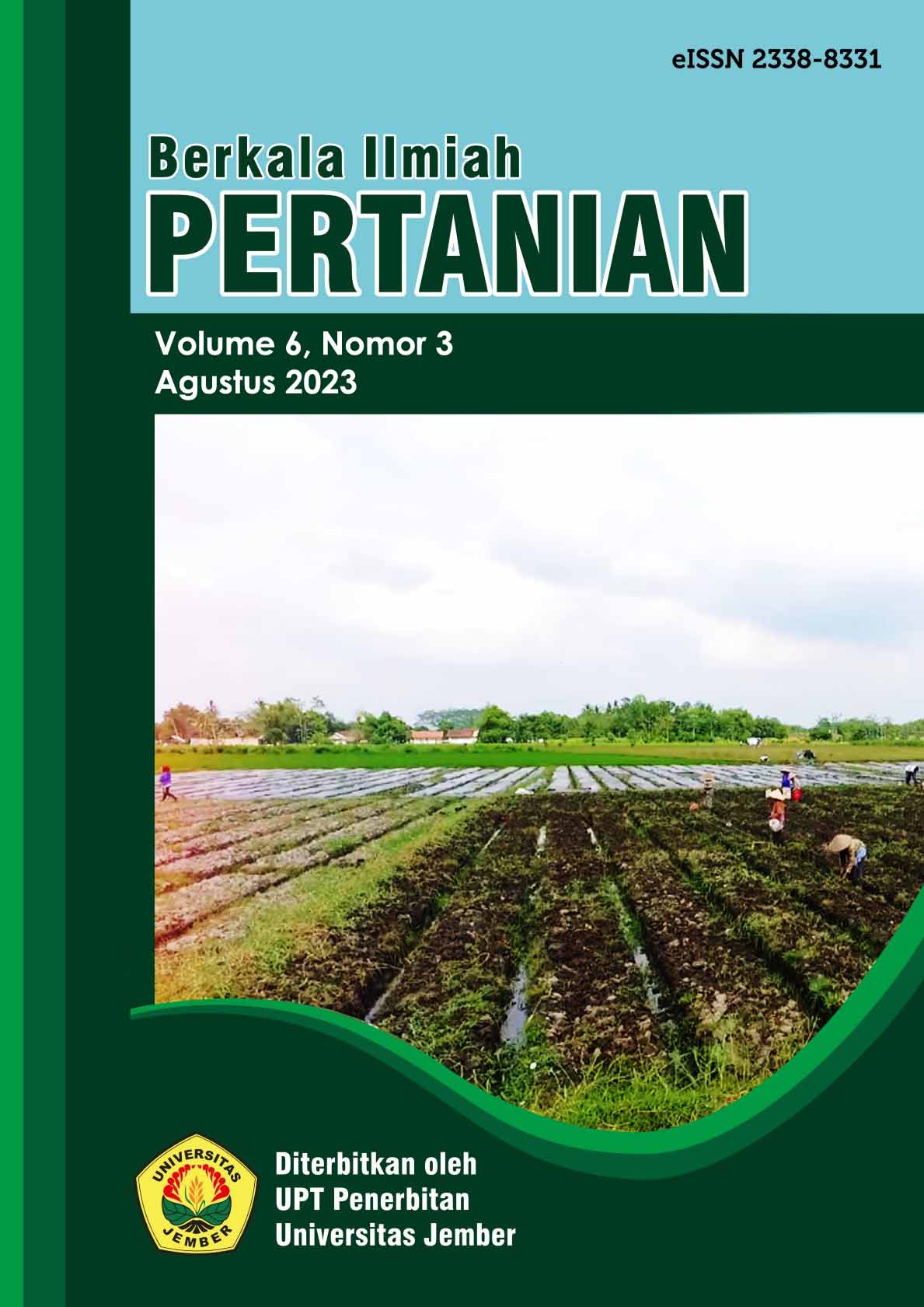Persepsi dan Minat Mahasiswa Fakultas Pertanian di Kabupaten Jember terhadap Profesi Petani
DOI:
https://doi.org/10.19184/bip.v6i3.40702Abstract
Agriculture is an important sector because it produces the food, shelter, and clothing needed by the community. The agricultural sector is still less attractive to the younger generation, even to the Faculty of Agriculture students themselves. The reasons for the lack of interest in the agricultural sector are due to several things, namely the stigma that agriculture is poor, the perception that agriculture is dirty, dangerous and difficult, and the news about crop failures. This study aims to identify: (1) the perceptions of students of the Faculty of Agriculture in Jember Regency towards the farming profession; (2) the interest of students in the Faculty of Agriculture in Jember Regency towards profession of farmers; (3) the relationship between perceptions and the interest of students of the Faculty of Agriculture in Jember district towards profession of farmers. This research uses descriptive analytical method. The data used are primary and secondary data, analyzed using a descriptive analysis with Likert scale and Rank Spearman Correlation. The number of research samples are 20 studenst of Jember Muhammadiyah University (UM Jember), 62 studenst of Jember University (UNEJ), and 15 studenst of Jember Islamic University (UIJ). The results are: (1) students of the Faculty of Agriculture in Jember Regency had a good perception of the farming profession with a percentage value of 70.83%; (2) students of the Faculty of Agriculture in Jember Regency are very interested in working as farmers with a percentage value of 77.74%; (3) the perception with interest of the students of the Faculty of Agriculture in Jember Regency has a significant relationship to the farming profession with a value of rs = 0.519 which is classified as a category of quite large or quite strong relationship.
Downloads
Downloads
Published
Issue
Section
License
Authors who publish with this journal agree to the following terms:
1.Authors retain copyright and grant the journal right of first publication with the work simultaneously licensed under a Creative Commons Attribution-NonCommercial 4.0 International License that allows others to share the work with an acknowledgement of the work's authorship and initial publication in this journal.
2.Authors are able to enter into separate, additional contractual arrangements for the non-exclusive distribution of the journal's published version of the work (e.g., post it to an institutional repository or publish it in a book), with an acknowledgement of its initial publication in this journal.
3.Authors are permitted and encouraged to post their work online (e.g., in institutional repositories or on their website) prior to and during the submission process, as it can lead to productive exchanges, as well as earlier and greater citation of published work (See The Effect of Open Access).




















